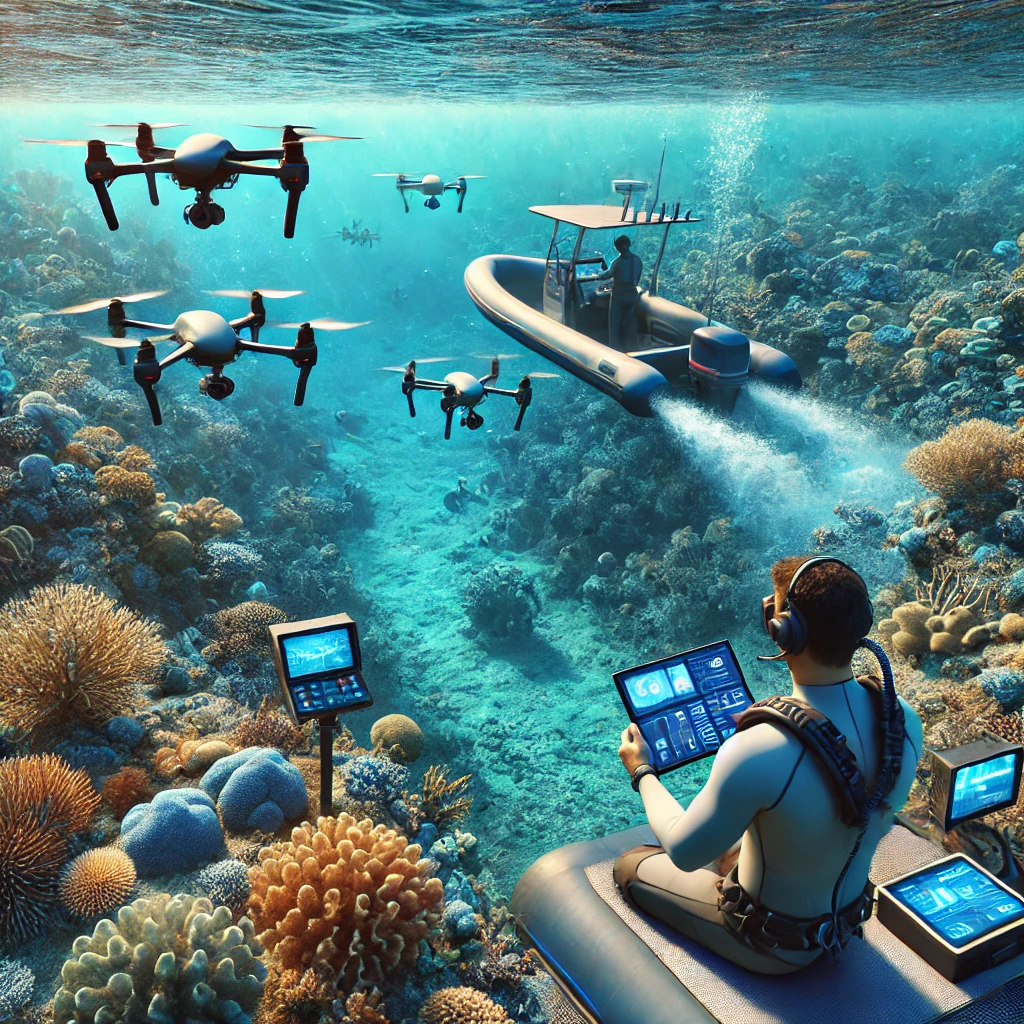Canon Partners with Nature Seychelles to Launch First Coral Breeding Lab
Traditionally, coral reef restoration efforts in Seychelles have focused on “coral gardening,” a process where coral fragments are harvested, grown in underwater nurseries, and then transplanted to degraded reefs.

- Country:
- Seychelles
Canon EMEA has entered into a landmark partnership with Nature Seychelles—a pioneering marine conservation NGO in the Western Indian Ocean—and the UK-based Coral Spawning Lab (CSL) to launch the region’s first-ever land-based coral breeding facility. This innovative initiative aims to revolutionize coral reef restoration in Seychelles by replacing outdated methods with cutting-edge coral aquaculture and genetic banking technology.
The project, which represents a leap forward in conservation science and sustainable development, is designed to protect and regenerate Seychelles’ coral ecosystems—ecosystems that are vital not only to biodiversity but also to the country’s economy and cultural heritage.
Rethinking Coral Restoration: From Cloning to Breeding
Traditionally, coral reef restoration efforts in Seychelles have focused on “coral gardening,” a process where coral fragments are harvested, grown in underwater nurseries, and then transplanted to degraded reefs. While effective in the short term, this method results in genetically identical corals—a practice that lacks long-term ecological resilience. These “cloned” corals often succumb to recurring climate-induced events such as coral bleaching, caused by rising sea temperatures and ocean acidification.
"Currently, we're essentially cloning corals, creating reefs of genetically identical species," explained Dr. Nirmal Shah, CEO of Nature Seychelles. "To build truly resilient reefs, we need to embrace true diversity. This partnership with Canon and CSL allows us to breed genetically varied coral species and create a resilient genetic bank."
The new facility—known as the Assisted Recovery of Corals (ARC) Lab—will serve as a land-based coral aquaculture center focused on selective breeding of corals to enhance genetic diversity, resilience, and adaptive capacity in response to climate change.
Canon’s Technological and Financial Contributions
Canon’s role in the partnership is multifaceted. The company is providing financial investment for the construction and operationalization of the ARC facility. Additionally, Canon is supplying state-of-the-art imaging equipment, enabling researchers to conduct:
-
Photomicrography: Capturing high-resolution images of coral spawning and growth processes at the microscopic level.
-
Photogrammetry: Creating 3D models of coral structures for monitoring development and health.
-
Visual Storytelling: Producing compelling imagery and videos to engage in citizen science, public education, and global awareness.
This is part of Canon’s broader environmental sustainability initiative to use its imaging technologies—from high-performance cameras to satellite observation tools—to support global conservation efforts.
A Regional First With Global Implications
The Seychelles facility will be the first of its kind in the Western Indian Ocean, establishing a blueprint for similar efforts in other island and coastal nations vulnerable to climate change. The Coral Spawning Lab will build and help operate the ARC lab while training local scientists and technicians in coral reproductive science.
Dr. Jamie Craggs, CSL’s co-founder and marine biologist, emphasized the innovative nature of this collaboration:
“This partnership allows us to develop more effective coral breeding techniques. And by using Canon’s advanced imaging, we can observe coral spawning in unprecedented detail, better understand lifecycle patterns, and share this knowledge with a global audience. As a former underwater cameraman, I know the power of imagery to inspire change."
Aligning Conservation With Local Livelihoods
Healthy coral reefs underpin Seychelles’ economic backbone—tourism, fisheries, and coastal protection. The deterioration of these reefs due to warming oceans and bleaching events has direct implications for food security, employment, and national resilience.
“Coral reefs are the foundation of our economy, our environment, and our way of life,” said Dr. Shah. “This isn’t just about saving reefs—it’s about securing our future as a nation.”
Canon’s Peter Bragg, Sustainability and Government Affairs Director, shared the company’s vision:
“This partnership reflects our commitment to biodiversity and climate resilience. Our imaging technology empowers communities to see, understand, and communicate the story of coral reefs. We believe in equipping vulnerable nations like Seychelles with the tools to protect their ecosystems for generations to come.”
Education, Citizen Science, and Global Awareness
The partnership also emphasizes community engagement through public education, awareness campaigns, and citizen science initiatives. Canon’s visual tools will help researchers document coral behavior and involve local students, volunteers, and conservationists in restoration efforts.
By capturing high-resolution coral spawning events and providing visual access to otherwise hidden underwater processes, the project aims to demystify coral science and inspire a new generation of ocean stewards.
A Blueprint for the Future of Coral Conservation
This collaboration between Canon EMEA, Nature Seychelles, and the Coral Spawning Lab represents a paradigm shift in coral reef restoration—from cloning to assisted sexual reproduction and genetic diversity. As the first such coral breeding initiative in the region, it promises to set new standards in marine ecosystem protection, research, and public engagement.
With the Seychelles as the proving ground, this project could serve as a global model for coral conservation in other small island developing states and coastal regions threatened by climate change.










